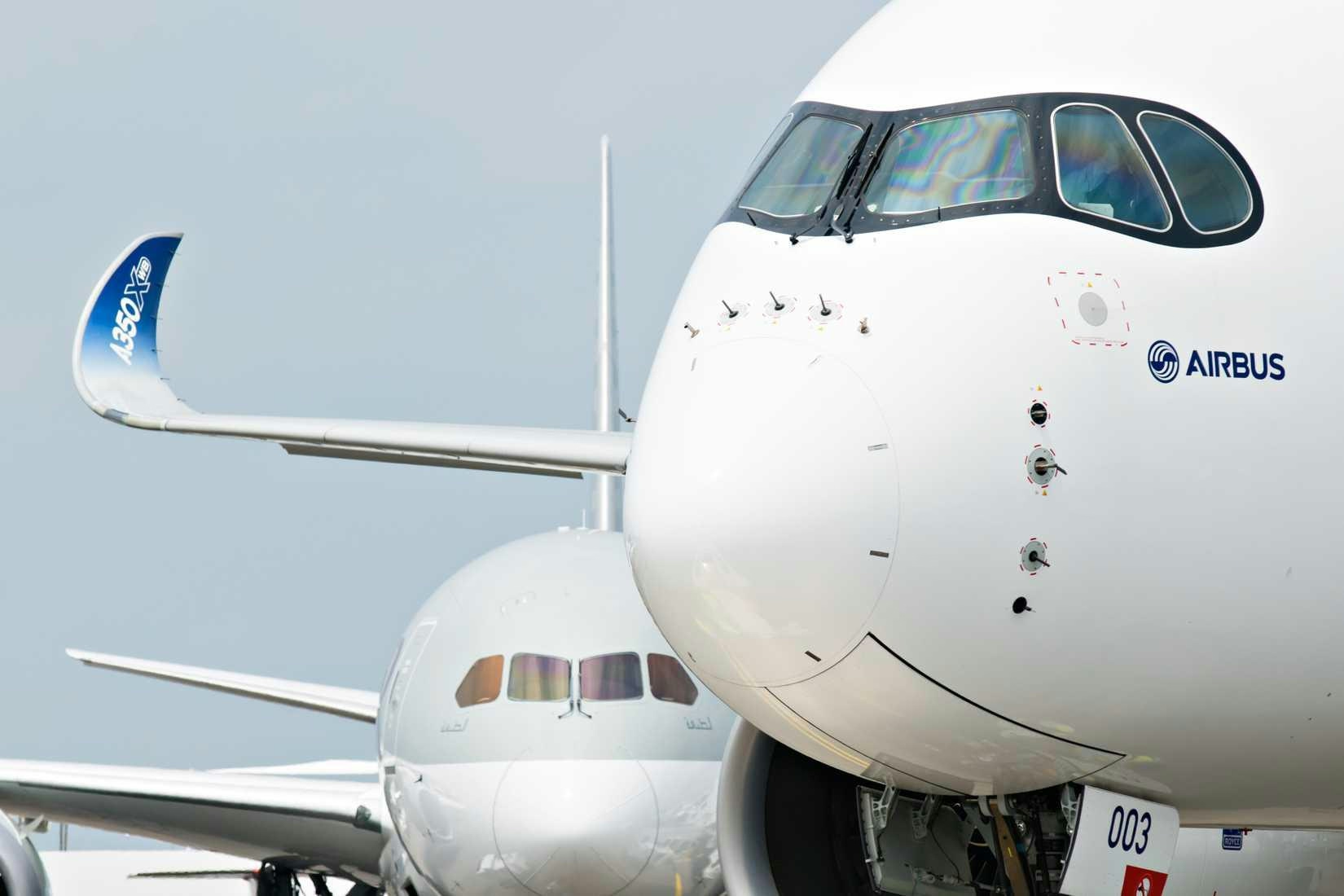أيروجيني — مساعدك الذكي للطيران.
الرائج الآن
Categories
Comparing Noise Levels of the Airbus A350 and Boeing 787

Comparing Noise Levels of the Airbus A350 and Boeing 787
The Airbus A350 and Boeing 787 represent two of the most advanced widebody aircraft in contemporary aviation, serving as cornerstones for airlines operating long-haul and ultra-long-haul routes worldwide. Renowned for their efficiency, reliability, and passenger comfort, these aircraft have transformed modern air travel. While cabin design, seating arrangements, and in-flight technology often dominate discussions on comfort, aircraft noise has emerged as a critical consideration for both airlines and passengers.
The Widebody Rivalry
Boeing introduced the 787 Dreamliner program in 2004, with the first delivery to All Nippon Airways occurring in 2011. Constructed with approximately 50% composite materials, the 787 family—including the 787-8, 787-9, and 787-10 variants—accommodates between 250 and 340 passengers and offers a maximum range of up to 7,565 nautical miles. By mid-2025, Boeing had delivered over 1,200 Dreamliners, with major operators such as ANA, United Airlines, and American Airlines integrating the aircraft into their fleets.
Airbus launched the A350 program in 2005, achieving its maiden flight in 2013 and entering service in 2015 with Qatar Airways. The A350 family comprises the A350-900, A350-900ULR, A350-1000, and forthcoming variants including the A350-1000ULR and the freighter A350F. These aircraft typically seat between 300 and 400 passengers and offer ranges up to 9,700 nautical miles for the ultra-long-range versions, surpassing the 787 in both capacity and distance. The competition between Airbus and Boeing in this segment has driven continuous innovation, as each manufacturer seeks incremental advantages in performance, passenger comfort, and operational efficiency.
Cabin Comfort and Noise Reduction
Passenger satisfaction hinges significantly on cabin design, which encompasses seat ergonomics, lighting, air quality, and the choice of materials. However, noise levels—both inside the cabin and externally—have become increasingly important to regulators, airlines, and travelers. Quieter aircraft not only enhance the passenger experience but also assist airlines in meeting stringent airport noise regulations that are becoming more widespread globally.
Assessing noise performance between the A350 and 787 is complex, given the evolving regulatory environment and varying airline priorities. Airlines are increasingly attentive to customer preferences for quieter cabins, recognizing that noise levels can influence future aircraft orders. For instance, Turkish Airlines’ recent selection of GEnx engines for its latest Boeing 787 fleet highlights a focus on both fuel efficiency and noise reduction. Similarly, Vietjet’s firm order for 100 Airbus A321neos and MNG Air Cargo’s commitment to Airbus A350 freighters reflect the market’s sustained interest in quieter, next-generation aircraft.
Competitive Responses and Future Trends
In response to growing concerns over noise, both Airbus and Boeing are advancing engine technologies and enhancing cabin insulation to reduce noise footprints. These improvements are becoming key differentiators in the competitive landscape, as manufacturers strive to deliver quieter, more comfortable flights. The ongoing rivalry between the A350 and 787 is expected to accelerate innovation, with future aircraft likely to feature even lower noise emissions.
The competition between the Airbus A350 and Boeing 787 thus extends beyond traditional metrics of range and efficiency, encompassing the increasingly vital dimension of noise reduction. This focus is shaping not only passenger experience but also the broader trajectory of commercial aviation development.

Emirates Unveils Cabin Design for New Boeing 777X

Eighteen Years On, the Airbus A380 Remains Central to a $34 Billion Airline

How a boom in luxury airline seats is slowing down jet deliveries

Navitaire Outage Attributed to Planned Maintenance

DigiYatra Debuts Outside Aviation at India AI Impact Summit

Vietnam Orders Strengthen Boeing’s Commercial Outlook

Airbus Signals Uncertainty Over Future A400M Orders

JobsOhio Awards $2 Million Grant to Hartzell Propeller for Innovation Center

Collins Aerospace Tests Sidekick Autonomy Software on YFQ-42A for U.S. Air Force CCA Program

How the Airbus A350-1000 Compares to the Boeing 777
